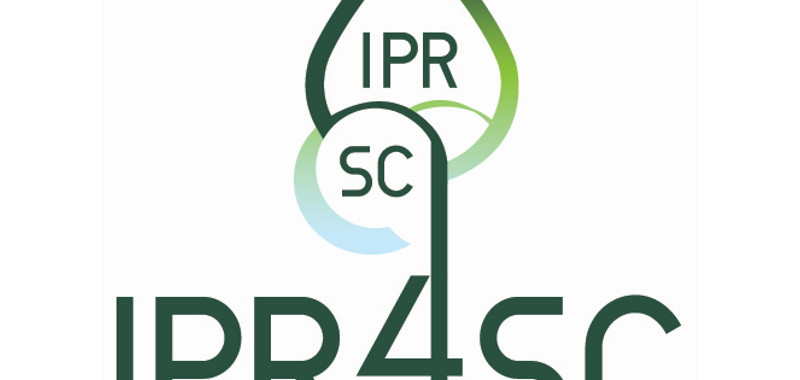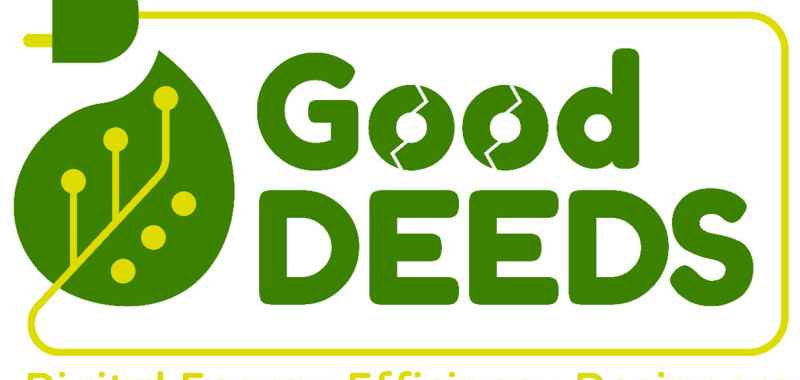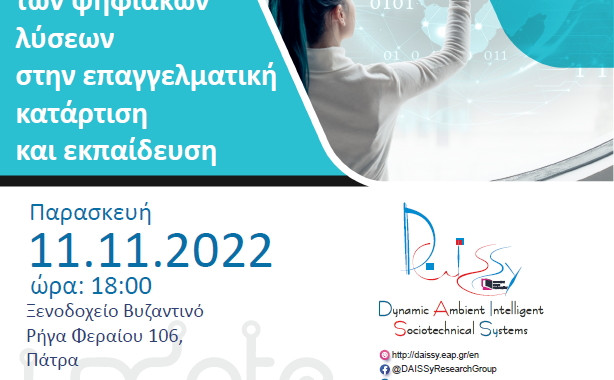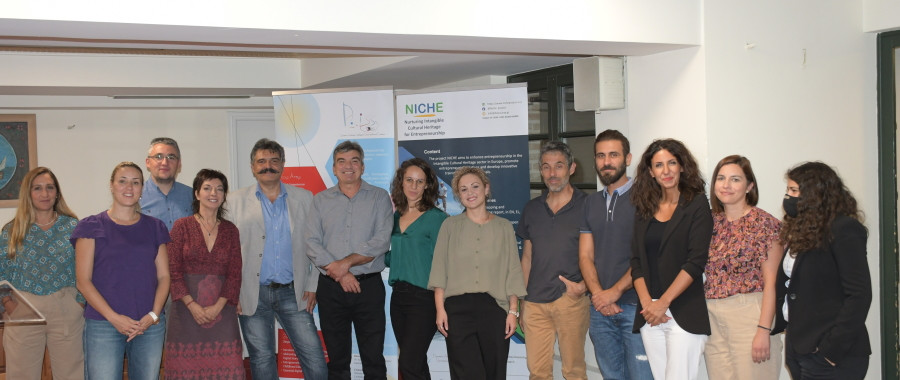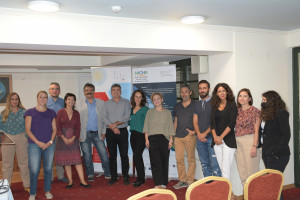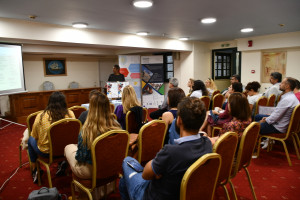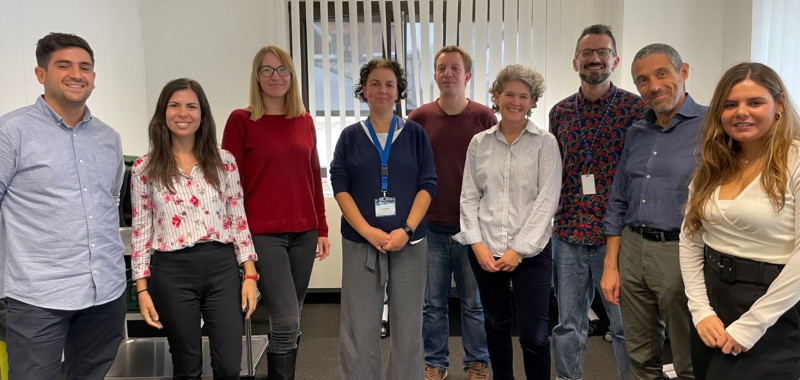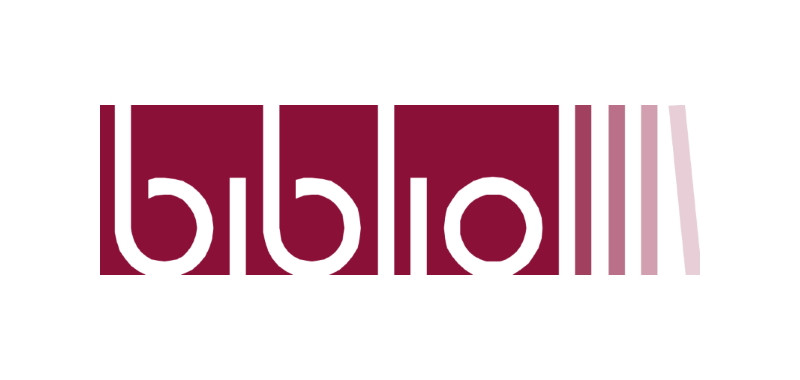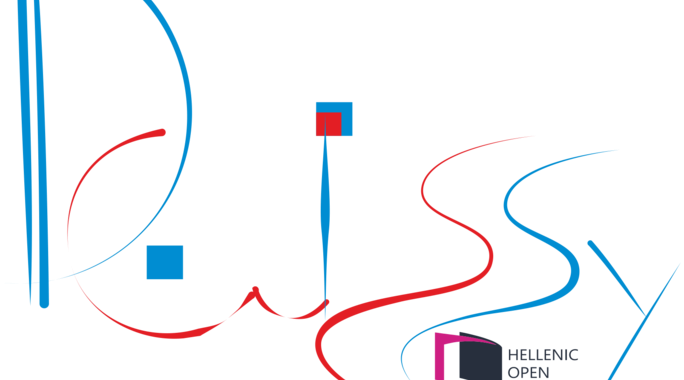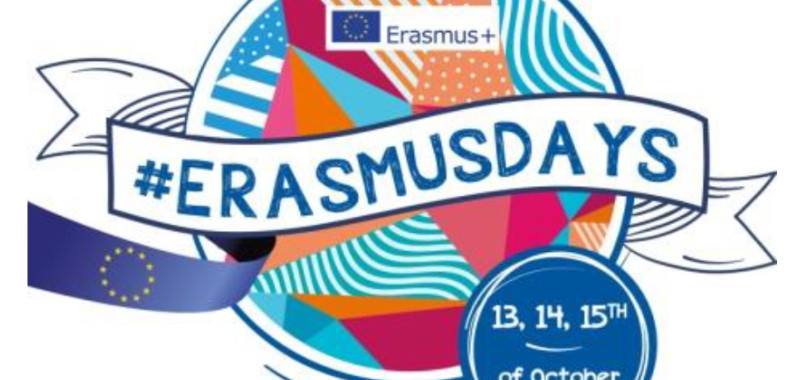IPR4SC Project Description
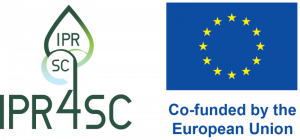 Title: Developing skills in Intellectual Property Rights Open Data for sustainability and circularity
Title: Developing skills in Intellectual Property Rights Open Data for sustainability and circularity
Acronym: IPR4SC
Programme: Erasmus+
Project Number: 101056129 — IPR4SC — ERASMUS-EDU-2021-PI-ALL-INNO
Start – End Date: 01/06/2022 – 31/05/2025
Duration: 36 months
Action: ERASMUS Lump Sum Grants
Funding: Agency European Education and Culture Executive Agency
Total Project Funding €1.096.804,00
Project Homepage: https://www.ipr4sc.eu/
Status: Ongoing
Can IPR protection processes apply effectively, be facilitated and co-evolve within the uprising Open Resources, Circular and Sustainable ecosystems’ environment? What does it take to make it so?
The IPR4SC project targets the lack of intellectual property informatics and management skills, the so called ‘IP for business’ skills that are enriched with green, digital and entrepreneurial attributes. Their lack impose a significant barrier to the successful engagement of new, digitally empowered transitions towards increased sustainability and circularity, green and accelerated economic growth achievement. The general aim of the project is to increase the innovation capacity of EU inventors being trained in HE and VET organizations, in designing and implementing sustainable and circular economy businesses by boosting their ‘IP for business’ skills.
The project will develop educational offerings to be delivered by the HEI and VET providers that are adapted to the various target groups, foster the utilization of open resources, and facilitate the process of putting ‘IP for business’ into practice.
IPR4SC is focused on the following target groups: HEIs and technology transfer offices, spin-outs, and students from technical, natural and business sciences; VETs and their learners, as well as SMEs – especially start-ups. Other stakeholders, such as patent offices, IP lawyers, large companies and policymakers are also targeted.
The invoked partners will deliver a detailed IP for business skills needs analysis, develop an IT tool (IPR Monitor) as a navigating, decision-tree-based online tool, design and deliver the Innovation and Intellectual Property for Green (I2P) for Green course and modules (IP for green skills), the Simulation lab (IP for digital skills), and the innovative format of an IP Co-design Jam (strengthening entrepreneurial skills). The project is co-developed and co-delivered by a partnership of 4 universities, 2 technology & innovation providers, 2 VET providers, and 2 partners supporting the consortium by providing professional services in project management and dissemination. A number of associated partners, including patent offices and other organisations are also involved.
Project Outcomes
The project aims to increase the innovation capacity of EU inventors, trained in HE and VET organizations, in designing and implementing sustainable and circular economy businesses by boosting IP for business skills.
During IPR4SC a number of educational offerings that are adapted to the various target groups will be developed, to be delivered by the HEI and VET providers, through the use of open resources, supporting and putting IP for business into practice.
Instruments:
- IPR Monitoring report
- Innovation and IP for Green (I2P) for Green Toolkit
- I2P for Green course and module
- Facilitator Handbooks for implementing IPR Simulation Labs for digital skills and IP Co-Design Jam methodology, training materials and workshops (IP for Entrepreneurship)
Partners
Beneficiaries
- FAKULTETA ZA INFORMACIJSKE STUDIJE V NOVEM MESTU Slovenia
- NORD UNIVERSITET NO
- VISOKO UCILISTE ALGEBRA HR
- LINK CAMPUS UNIVERSITY IT
- VALUEDO SRL IT
- PANNON GAZDASAGI HALOZAT EGYESULET HU
- LOGIKA zaloznisko podjetje d.o.o. SI
- ERRE QUADRO SOCIETA A RESPONSABILITA LIMITATA IT
- IZOBRAZEVALNI CENTER GEOSS DOO SI
- HELLENIC OPEN UNIVERSITY EL
Associates
- Patentstyret NO
- DRZAVNI ZAVOD ZA INTELEKTUALNO VLASNISTVO HR
- Entrepreneurial Rise z.b.o. SI
- RAZVOJNI CENTER SRCA SLOVENIJE DOO SI
- PANEPISTIMIO PATRON EL
- ZAVOD NEFIKS – INSTITUT ZA PROMOCIJO IN BELEZENJE NEFORMALNO PRIDOBLJENEGA ZNANJA SI
- BUGNION SPA IT
- ANSALDO ENERGIA SPA IT
Funded by the European Union. Views and opinions expressed are however those of the author(s) only and do not necessarily reflect those of the European Union or the European Education and Culture Executive Agency (EACEA). Neither the European Union nor EACEA can be held responsible for them.
DAISSy Research Group organizes event on the topic of skills development in digital energy efficiency
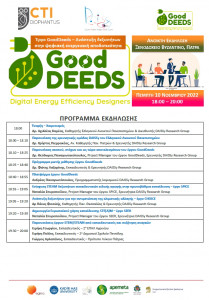 On Thursday, November 10 2022, from 18:00 to 20:00, the DAISSy research group of the Hellenic Open University, organizes the live event entitled “Skills development in digital energy efficiency” to disseminate the results of the Good Deeds (Digital Energy Efficiency Designers) project. The Good Deeds project is implemented by a consortium of 6 partners from 6 different European countries (Greece, Italy, Turkey, Romania, Portugal and Latvia) and has as its central purpose the development and testing of a methodology and a learning platform for Vocational Education and Training (VET) teachers and students, in order to promote a strategy of continuous and sustainable development of sectoral capabilities for digital energy efficiency.
On Thursday, November 10 2022, from 18:00 to 20:00, the DAISSy research group of the Hellenic Open University, organizes the live event entitled “Skills development in digital energy efficiency” to disseminate the results of the Good Deeds (Digital Energy Efficiency Designers) project. The Good Deeds project is implemented by a consortium of 6 partners from 6 different European countries (Greece, Italy, Turkey, Romania, Portugal and Latvia) and has as its central purpose the development and testing of a methodology and a learning platform for Vocational Education and Training (VET) teachers and students, in order to promote a strategy of continuous and sustainable development of sectoral capabilities for digital energy efficiency.
Moreover, key projects in the field of STEM/STE(A)M education realized by the DAISSy research group will be described. In addition, teachers from primary and secondary education schools of Patra and Agrinio will present activities and emerging needs of STEM/STE(A)M education.
The event will be held at Byzantino hotel, Riga Feraiou Street. 106, Patras. Participation is free and certificates of participation will be given.
For more information for Good Deeds project and the DAISSy research team:
- Webpages: http://daissy.eap.gr/en, https://www.gooddeeds.eu/
- Facebook: @DAISSyResearchGroup, @goodDEEDSproj
- Linkedin: https://www.linkedin.com/in/daissyresearchgroup/
- Twitter: https://twitter.com/daissy_research
- Instagram: @daissy_researchgroup, good.deedsproject
- Email: info@daissy.eap.gr
DAISSy / HOU organizes the national event entitled “The use of digital solutions in vocational training and education” within UpDATE project
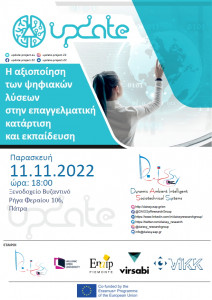 The DAISSy research group of the Hellenic Open University invites you to participate in the info day entitled “The use of digital solutions in vocational training and education”, which will take place on Friday 11 November 2022 at 18.00, at the “Byzantino” Hotel in Patras. The event will be in Greek.
The DAISSy research group of the Hellenic Open University invites you to participate in the info day entitled “The use of digital solutions in vocational training and education”, which will take place on Friday 11 November 2022 at 18.00, at the “Byzantino” Hotel in Patras. The event will be in Greek.
The DAISSy research group – HOU participates as a partner in the actions of the project User-friendly Practical Distance Active Training Experience – UPDATE [2021-1-IT01-KA220-VET-000032930], funded by the Erasmus+ programme of the European Commission. The UpDATE project (https://www.update-project.eu/), with a duration of 24 months, aims to strengthen and implement a digital ecosystem for vocational training by collecting and developing digital and technological solutions and enhancing the updating of digital skills of vocational education and training teachers and trainers. The overall objective of the project is to improve the quality of vocational training provided by VET organisations – with a view to increasing the learning opportunities, integration and training success of trainees, as well as their employability – by enhancing the capacities of trainers and instructors to implement blended and distance learning formats and to apply new technologies to vocational training activities with a high practical content.
The event is addressed to individuals and representatives of associations, institutions and bodies at local, national and European level. In particular, it is addressed to vocational education and training providers, apprenticeship advisors, vocational training teachers, decision-makers, researchers and education professionals.
Physical participation in the event is open to all. Participants who opt for online attendance will be connected via the Zoom platform. The event will be held in Greek.
Certificates of participation will be provided. For any information, please contact info@daissy.eap.gr
For more information:
- Website: https://update-project.eu/ – http://daissy.eap.gr
- Facebook: @update.project.22 – @DAISSyResearchGroup
- LinkedIn: linkedin.com/in/daissyresearchgroup
- Twitter: @daissy_research
- Email: info@daissy.eap.gr
Press release for the NICHE multiplier event
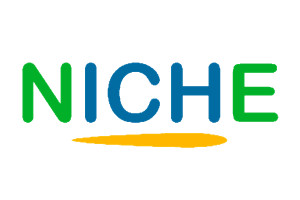 On Friday 23 September 2022, at 18:00 – 20:00, the DAISSy research group of the Hellenic Open University organized the Greek dissemination event of the results of the European project NICHE, entitled “Enhancing Entrepreneurship in the field of Intangible Cultural Heritage”, at the hotel “Byzantino”, in Patras.
On Friday 23 September 2022, at 18:00 – 20:00, the DAISSy research group of the Hellenic Open University organized the Greek dissemination event of the results of the European project NICHE, entitled “Enhancing Entrepreneurship in the field of Intangible Cultural Heritage”, at the hotel “Byzantino”, in Patras.
In the first part of the multiplier event, the team of NICHE project presented the objectives, the results of the project as well as the importance of Intangible Cultural Heritage and the professions mapped in the framework of the project, based on the ESCO platform. The NICHE project aimed to map the training needs and then train people employees in the intangible cultural heritage of their country. The NICHE online training programme with 10 modules, which was designed and offered to enhance entrepreneurship in the intangible cultural heritage sector, was also presented.
Important speeches by guest speakers on topics related to intangible cultural heritage followed. Specifically, Mrs. Eleni Kyrioti, Secondary Education Teacher and NICHE trainee, presented the stages of registration of a cultural element in the National Repository, the criteria and examples of intangible cultural heritage that she has identified in the island of Thassos.
From the city of Patras and its Carnival, Mr. Fotis Louridas, as a member of the longest-standing crew of a cultural phenomenon for the city, spoke about his experience and the importance of listing the Carnival of Patras in the National Repository.
Mr. Konstantinos Nikoloutsos, President of the Ilia Chamber of Commerce, made a brief reference to the project “PRONACUL – Cultural heritage as a lever for development”, stressing the importance of a common strategy for the management of cultural and natural heritage in the Adriatic.
The second part of the event, included presentations of two European projects in which the Hellenic Open University participates as partner. DAISSy – EAP researchers presented the BIBLIO project which aims the training of professionals working in libraries and the EUHeritage online course which is offered again in 2022 and registration is open! The EUHeritage project aimed to the training of professionals in cultural management.
The event was attended by 25 people from education and research sector as well as professionals from the field of culture.
DAISSy / HOU participates in the new project «CRISIS – SEER – The STE(A)M Education European Roadmap»
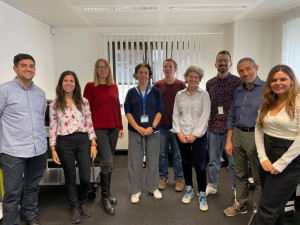 The DAISSy research group of Hellenic Open University (HOU) (http://daissy.eap.gr/en/) participates in the activities of the new project entitled “SEER – The STE(A)M Education European Roadmap”, which is co-funded by the horizon Europe Programme. The SEER project (with a duration of 36 months) is implemented by a consortium of 6 partners from an equal number of countries (Greece, Cyprus, Belgium, Netherlands, Germany and Italy), in which internationally recognized institutions/bodies participate in research and formulation of policies related to STE(A)M education, under the coordination of the European Schoolnet (European Schoolnet), whose members are the Ministries Education of European countries. Its main purpose is to study the current status of STE(A)M education in Europe, collect practices and policies, talk to the community of STE(A)M educators through the Scientix platform (http://www.scientix. eu/) and analyze the gaps and needs in order to produce the road map of the implementation of integrated STE(A)M education in Europe.
The DAISSy research group of Hellenic Open University (HOU) (http://daissy.eap.gr/en/) participates in the activities of the new project entitled “SEER – The STE(A)M Education European Roadmap”, which is co-funded by the horizon Europe Programme. The SEER project (with a duration of 36 months) is implemented by a consortium of 6 partners from an equal number of countries (Greece, Cyprus, Belgium, Netherlands, Germany and Italy), in which internationally recognized institutions/bodies participate in research and formulation of policies related to STE(A)M education, under the coordination of the European Schoolnet (European Schoolnet), whose members are the Ministries Education of European countries. Its main purpose is to study the current status of STE(A)M education in Europe, collect practices and policies, talk to the community of STE(A)M educators through the Scientix platform (http://www.scientix. eu/) and analyze the gaps and needs in order to produce the road map of the implementation of integrated STE(A)M education in Europe.
On October 13 and 14, 2022, the kick off meeting of the project took place in Brussels, hosted by the European School Network. A total of 10 representatives of the project partners participated in the meeting. On the first day, general information about the project was presented and a detailed discussion was held on the implementation methodology during the first year of its time table. Specifically, the work plan to define current trends, goals and innovative practices in STE(A)M education at European level was presented by the University of Education Freiburg, the methodology for analyzing the needs of key stakeholders and the impact of existing gaps in STE(A)M education was presented by the DAISSy research group of the HOU, while the requirements for the development of the STE(A)M education evaluation and certification framework and tools were described by the University of Cyprus. Finally, issues of the visual identity of the project were discussed and a visit was made to the “Future Classroom Lab” space at the facilities of the European School Network. On the second day, issues of communication, visibility and dissemination of the project results were discussed and a brainstorming session regarding the layout and structure of the STE(A)M education roadmap took place.
For more information on the activities of the DAISSy research team:
- Websites: http://daissy.eap.gr/en
- Facebook: @DAISSyResearchGroup
- Linkedin: https://www.linkedin.com/in/daissyresearchgroup/
- Twitter: https://twitter.com/daissy_research
- Instagram: @daissy_researchgroup
- Email: info@daissy.eap.gr
The DAISSy-HOU presented the BIBLIO activities in Greece within the project TPM and the project event at ALL DIGITAL SUMMIT 2022
 The “BIBLIO: Boosting digital skills ad competencies for librarians in Europe” EU project is honored to be presented at the ALL DIGITAL Summit 2022 focusing on “Shaping DIGITAL transformation with and for ALL” and implemented on-site in Prague (28-30.9.2022)!
The “BIBLIO: Boosting digital skills ad competencies for librarians in Europe” EU project is honored to be presented at the ALL DIGITAL Summit 2022 focusing on “Shaping DIGITAL transformation with and for ALL” and implemented on-site in Prague (28-30.9.2022)!
More precisely and within the thematic circle of “SHAPING DIGITAL TRANSFORMATION AT EUROPEAN LEVEL”, a significant workshop entitled “BIBLIO work-based learning and the Digitization Activities of the National Library of the Czech Republic” was implemented on 29th September 2022 (14.15-15.30 CET), where the BIBLIO Work Based Learning (WBL) activities were presented.
The DAISSy Research Group of the Hellenic Open University (HOU) took part in the event, by emphasizing on the experience gained by the implementation of the BIBLIO WBL activities in Greece and their impact on the library professionals, who joined them. The speech was delivered by Foteini GATOMATI, Project Manager of BIBLIO in DAISSy-HOU, who presented the positive feedback of the WBL trainee experience. She also showcased the innovative ideas to be implemented in Greek libraries, and she explained how they were formed, as a valuable outcome of applying the BIBLIO training methodology, in practice.
A more detailed description of the content is available on the event site, along with the event program.
In addition, the DAISSy-HOU joined the BIBLIO Transnational Partner Meeting (TPM) which was implemented on 27th – 28th September 2022 with success. All partners joined it and had the opportunity to an in-depth presentation of how the project evolves in every BIBLIO country, the difficulties faced and the ways to overcome the obstacles, the next steps and milestones to be completed. Emphasis was put on the MOOC evaluation, WBL experience and future dissemination activities.
- The AD Summit 2022 was implemented on site. In parallel, specific sessions provided the opportunity for online attendance. The events triggered the interest of academics, researchers, policymakers, experts and stakeholders in the digital skills, professionals in the sectors of culture, education, environment, etc.
- The DAISSy Research Group of HOU is a member of the ALL DIGITAL network, is the Greek partner of the BIBLIO EU project (ERASMUS+ / 612411-EPP-1-2019-1-IT-EPPKA2-SSA) and implements it, in cooperation with the Distance Library and Documentation Centre (DLIC) of the HOU, associate partner.
Stay tuned and remember to visit the site of the BIBLIO project and to check the “Stories” of the BILBIO partners! https://www.biblio-project.eu/stories/
For more information about the BIBLIO project as well as other activities of the DAISSy-HOU:
- Website : http://daissy.eap.gr/en/ https://www.biblio-project.eu/
- Facebook : @DAISSyResearchGroup, @DigitalBiblio
- Linkedin : https://www.linkedin.com/in/daissyresearchgroup/
- Twitter : https://twitter.com/daissy_research, @digitalbiblio
- Instagram: @daissy_researchgroup
- Email : info@daissy.eap.gr
Εργαλείο αυτό-αξιολόγησης σε σχέση με τη ρητορική μίσους στο διαδίκτυο
Το εργαλείο αυτό-αξιολόγησης σε σχέση με τη ρητορική μίσους στο διαδίκτυο (Hate Speech Self-Assessment Tool), που αναπτύχθηκε από την ερευνητική ομάδα της DAISSy στα πλαίσια του έργου LEAD-Online: Learn, Engage, Act: Digital Tools to Prevent and Counter Hate Speech Online είναι πλέον διαθέσιμο.
https://www.lead-online.eu/el/
Το εργαλείο απευθύνεται τόσο σε μαθητές (14 ετών και άνω) όσο και σε εκπαιδευτικούς, δημοσιογράφους, ακτιβιστές των μέσων κοινωνικής δικτύωσης και άλλους ρόλους που σχετίζονται με το ζήτημα, και έχει ως στόχο να καταγράψει τις υπάρχουσες απόψεις και στάσεις τους γύρω από το φαινόμενο της ρητορική μίσους στο διαδίκτυο, αλλά και να υποστηρίξει τους συμμετέχοντες στο να καταλάβουν τη φύση και την έκταση του φαινομένου.
Τα αποτελέσματά του θα συμβάλλουν στη συνέχεια στο σχεδιασμό ενός διαδραστικού παιχνιδιού (Hate out Game!) που θα βασίζεται σε ρεαλιστικά σενάρια, με απώτερο στόχο την εκπαίδευση του χρήστη στον αποτελεσματικό εντοπισμό και αντιμετώπιση του φαινομένου της ρητορικής μίσους στο διαδίκτυο.
Σας καλούμε να συμπληρώσετε το τεστ και να συμβάλετε στην προσπάθεια μας για την αντιμετώπιση του φαινομένου της ρητορικής μίσους στο διαδίκτυο.
Η Ερευνητική Ομάδα DAISSy του ΕΑΠ διοργανώνει συνεδρία με θέμα το ψηφιακό γραμματισμό ως πρωταγωνιστής στην ανάπτυξη Πράσινων, Ψηφιακών και Επιχειρησιακών δεξιοτήτων στο πλαίσιο της εκδήλωσης DAISSy Days 2022
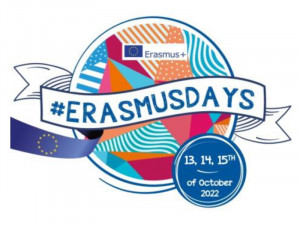 Η Ερευνητική Ομάδα DAISSy του Ελληνικού Ανοικτού Πανεπιστημίου, με ιδιαίτερη χαρά σας προσκαλεί στη συνεδρία με τίτλο “Ο ψηφιακός γραμματισμός πρωταγωνιστεί στην ανάπτυξη Πράσινων, Ψηφιακών και Επιχειρησιακών δεξιοτήτων“, η οποία θα λάβει χώρα διαδικτυακά την Πέμπτη 13 Οκτωβρίου 2022 στις 17:30. Η εκδήλωση αυτή θα διαρκέσει 1,30 ώρα και θα εστιάσει στην παρουσίαση έργων και δράσεων της ομάδας DAISSy στην εκπαίδευση. Θα παρουσιαστούν θέματα σχετικά με την ενίσχυση πράσινων, ψηφιακών και επιχειρησιακών δεξιοτήτων με την εφαρμογή αυτών σε σχολεία πρωτοβάθμιας και δευτεροβάθμιας εκπαίδευσης, σε ιδρύματα τριτοβάθμιας εκπαίδευσης και φορείς επαγγελματικής κατάρτισης.
Η Ερευνητική Ομάδα DAISSy του Ελληνικού Ανοικτού Πανεπιστημίου, με ιδιαίτερη χαρά σας προσκαλεί στη συνεδρία με τίτλο “Ο ψηφιακός γραμματισμός πρωταγωνιστεί στην ανάπτυξη Πράσινων, Ψηφιακών και Επιχειρησιακών δεξιοτήτων“, η οποία θα λάβει χώρα διαδικτυακά την Πέμπτη 13 Οκτωβρίου 2022 στις 17:30. Η εκδήλωση αυτή θα διαρκέσει 1,30 ώρα και θα εστιάσει στην παρουσίαση έργων και δράσεων της ομάδας DAISSy στην εκπαίδευση. Θα παρουσιαστούν θέματα σχετικά με την ενίσχυση πράσινων, ψηφιακών και επιχειρησιακών δεξιοτήτων με την εφαρμογή αυτών σε σχολεία πρωτοβάθμιας και δευτεροβάθμιας εκπαίδευσης, σε ιδρύματα τριτοβάθμιας εκπαίδευσης και φορείς επαγγελματικής κατάρτισης.
Η εκδήλωση απευθύνεται κυρίως σε εκπαιδευτικούς και εκπαιδευτές/τριες από όλες τις βαθμίδες και τύπους εκπαίδευσης, ερευνητές/τριες, φοιτητές/τριες και μαθητές/τριες, και γενικά άτομα που ενδιαφέρονται για το σχεδιασμό πολιτικών και την υλοποίηση δράσεων σχετικών με την ανάπτυξη Πράσινων, Ψηφιακών και Επιχειρησιακών δεξιοτήτων.
Όποιος/α επιθυμεί να παρακολουθήσει τη συνεδρία, μπορεί να το κάνει μέσω αυτού του Zoom Μeeting (Meeting ID: 860 9989 7708
Passcode: 307951).
Για περισσότερες πληροφορίες σχετικά με τη δράση DAISSy Days και λοιπές δράσεις της DAISSy:
- Ιστοσελίδα: http://daissy.eap.gr/en
- Facebook: @DAISSyResearchGroup
- Linkedin: https://www.linkedin.com/in/daissyresearchgroup/
- Twitter: https://twitter.com/daissy_research
- Instagram: @daissy_researchgroup
- Email: info@daissy.eap.gr
DAISSy-HOU joins ERASMUS DAYS by organizing an ONLINE info-day on Culture and Tourism within DAISSy Days 2022!
 The DAISSy Research Group of the Hellenic Open University invites you to take part in the online event entitled “Digital competences in a cutting edge role for the Culture and Tourism professionals”, organized online and in Greek (Thursday 13th October 2022, 19.00-20.30 Greek time).
The DAISSy Research Group of the Hellenic Open University invites you to take part in the online event entitled “Digital competences in a cutting edge role for the Culture and Tourism professionals”, organized online and in Greek (Thursday 13th October 2022, 19.00-20.30 Greek time).
The event focuses on what digital transformation implies in the sectors of culture and tourism and its impact on the development of the respective professionals. This objective is achieved through the presentation of the milestones of EU projects undergoing and/or completed by the organizer, as well as the exchange with main actors involved in this process. Emphasis is put to the interaction with the participants through a vivid sharing of views.
- The online event is targeted to policymakers, academics and students, experts and stakeholders as well as to everybody interested in the digital competences in the tourism and culture sectors.
- In particular, the event is included in the “DAISSy Days 2022” initiative organized by the DAISSy-HOU, to celebrate the “ERASMUS DAYS 2022”. This is an innovative initiative of the DAISSy-HOU, sharing a valuable experience in the implementation of European projects, including numerous currently ongoing projects also funded by the ERASMUS+ EU program.
- Participation is free of charge! Please, join through the Zoom platform:
https://us06web.zoom.us/j/84328725319?pwd=bmQ0NEVyRHRIV2N6dGJkbE5GV1AzQT09
Meeting ID: 843 2872 5319
Passcode: 834850By participating in the event, you give us your consent to video recording and release by DAISSy – HOU.
Download the agenda.
Stay tuned and find out more information about the DAISSy-HOU and its activities:
- Website: http://daissy.eap.gr/en/
- Facebook: @DAISSyResearchGroup
- LinkedIn : https://www.linkedin.com/in/daissyresearchgroup/
- Twitter : https://twitter.com/daissy_research
- Instagram : @daissy_researchgroup
- Email : info@daissy.eap.gr
Η Ερευνητική Ομάδα DAISSy του ΕΑΠ διοργανώνει συνεδρία με θέμα την εκπαίδευση STE(A)M στο πλαίσιο της εκδήλωσης DAISSy Days 2022
Η Ερευνητική Ομάδα DAISSy του Ελληνικού Ανοικτού Πανεπιστημίου, με ιδιαίτερη χαρά σας προσκαλεί στη συνεδρία με τίτλο “Δυνατότητες, πρακτικές και προοπτικές εκπαίδευσης STE(A)M”, η οποία θα λάβει χώρα διαδικτυακά την Παρασκευή 14 Οκτωβρίου 2022 στις 17:00. Η εκδήλωση αυτή θα διαρκέσει 1 ώρα και 20 λεπτά και θα εστιάσει στην παρουσίαση έργων και δράσεων της ομάδας DAISSy στην εκπαίδευση STE(A)M. Θα παρουσιαστούν θέματα σχετικά με την εκπαίδευση STEM/STE(A)M, όπως το πλαίσιο ικανοτήτων και το επαγγελματικό προφίλ των εκπαιδευτικών STEM/STE(A)M, ο σχεδιασμός και ανάπτυξη ενός νέου μεταπτυχιακού προγράμματος, η ανάπτυξη δεξιοτήτων εκπαιδευτών STE(A)M, η χρήση της εκπαίδευσης STE(A)M στην ειδική αγωγή, ενδεικτικά σενάρια χρήσης της στο σχολείο, ο Ευρωπαϊκός οδικός χάρτης της εκπαίδευσης κ.ά.
Η εκδήλωση απευθύνεται κυρίως σε εκπαιδευτικούς και εκπαιδευτές/τριες από όλες τις βαθμίδες και τύπους εκπαίδευσης, ερευνητές/τριες, φοιτητές/τριες και μαθητές/τριες, και γενικά άτομα που ενδιαφέρονται για το σχεδιασμό πολιτικών και την υλοποίηση δράσεων σχετικών με την εκπαίδευση STE(A)M.
Όποιος/α επιθυμεί να παρακολουθήσει τη συνεδρία, μπορεί να το κάνει μέσω αυτού του Zoom Μeeting (Meeting ID: 898 2986 5945, Passcode: 991122).
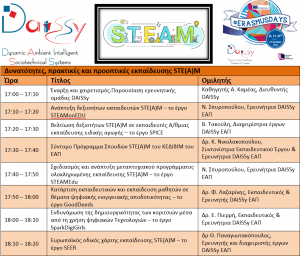 Για περισσότερες πληροφορίες σχετικά με τη δράση DAISSy Days και λοιπές δράσεις της DAISSy:
Για περισσότερες πληροφορίες σχετικά με τη δράση DAISSy Days και λοιπές δράσεις της DAISSy:
- Ιστοσελίδα: http://daissy.eap.gr/en
- Facebook: @DAISSyResearchGroup
- Linkedin: https://www.linkedin.com/in/daissyresearchgroup/
- Twitter: https://twitter.com/daissy_research
- Instagram: @daissy_researchgroup
- Email: info@daissy.eap.gr

